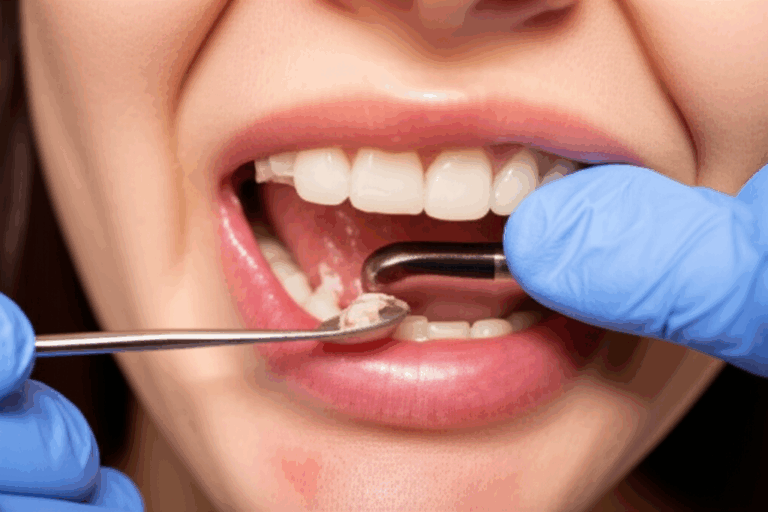
Does Tricare Cover Dental Implants for Spouses? My First-Hand Guide for Military Families
Table of Contents
- Introduction: My Journey Navigating Tricare Dental Coverage for Spouses
- The Tricare Dental Program (TDP): Understanding Your Main Option
- What is the Tricare Dental Program (TDP)?
- Services Typically Covered by TDP
- Does Tricare Cover Dental Implants for Spouses? The Honest Truth
- General Rule: Implants Aren’t Usually Covered—and Here’s Why
- Rare Exceptions: When Implants Might Be Covered for Spouses
- What Alternatives Does TDP Cover for Missing Teeth?
- Costs, Authorizations, and Limitations: The Real Numbers
- Typical Shares, Maximums, and Prior Approvals
- If Implants Aren’t Covered: Exploring Your Other Options
- How to Check Your Spouse’s Tricare Dental Coverage: My Step-by-Step Process
- Conclusion: What I Wish I’d Known About Tricare and Spouse Dental Implants
- Frequently Asked Questions
Introduction: My Journey Navigating Tricare Dental Coverage for Spouses
If you’re reading this, I’m guessing you or your spouse are looking at a dental bill that seems way too high. That’s where I was not long ago. My spouse lost a tooth. When our dentist said an implant was the best choice, I did what any military family might do—I wondered, “Does Tricare pay for dental implants for spouses? Or do we have to pay for all of it ourselves?”
I’ve spent time learning about Tricare dental plans, read the tiny print, and had many calls with customer service. Here, I’ll share my story, what I wish I’d known earlier, and tips so you can make a smart choice for your spouse’s teeth.
—
The Tricare Dental Program (TDP): Understanding Your Main Option
Before I could handle the implant issue, I had to figure out how dental insurance really works for military spouses. As I learned, not all Tricare plans work the same—especially for teeth.
What is the Tricare Dental Program (TDP)?
For most military families, including mine, the Tricare Dental Program (TDP) is the main way to get dental help. It’s separate from the usual Tricare health plan. The TDP covers active duty spouses, dependent kids, and some retired families or survivors. In the U.S., United Concordia runs the plan. If you’re overseas, it’s MetLife.
To use TDP, your spouse has to be signed up and the monthly payments need to be up to date. If you’re not sure, call United Concordia or MetLife to make sure you are covered.
Services Typically Covered by TDP
I remember looking at the TDP brochure and seeing a long list of services. Most of it covers:
- Preventive: Cleanings, exams, and X-rays.
- Diagnostic: More tests if there are problems.
- Restorative: Fillings, crowns, and bridges.
- Oral Surgery: Tooth pulling and some surgeries.
- Endodontics: Root canals.
- Periodontics: Gum treatments.
So, what about dental implants? Are they on this list? Time for the real answer.
Does Tricare Cover Dental Implants for Spouses? The Honest Truth
This is the big question. The simple answer: For most people, Tricare Dental Program does NOT pay for dental implants for spouses. But there are some rare times when they might, so hang in there.
General Rule: Implants Aren’t Usually Covered—and Here’s Why
Most of the time, if you ask about implants for spouses, the answer is just “no.” Why is that? Tricare often calls implants a high-cost or “cosmetic” fix. The plan is made to keep you healthy and able to eat, not to pay for expensive teeth replacements except for big reasons.
Unless your spouse really needs an implant because nothing else can work—like bridges or dentures—Tricare says no. Teeth lost from normal tooth problems don’t count.
Rare Exceptions: When Implants Might Be Covered for Spouses
This part is where it gets tricky. During my research, I read the TDP guide, spoke with their reps, and even got my dentist to help me look for possible ways in.
There are two main times Tricare might pay for an implant:
1. Accidental Injury
If your spouse loses a healthy tooth in an unexpected bad accident (like a car crash or bad fall), an implant could get paid for—but only if you show loads of paperwork. This is not for teeth lost because of cavities or gum sickness.
You’ll need:
- Proof of the accident.
- Proof the tooth was healthy before.
- A green light from the TDP insurance.
- A lot of waiting.
I heard of one spouse whose husband lost teeth in training. It took months, but Tricare did pay for some of the implant cost—because no other way would fix how things looked and worked. Stories like this are rare.
2. Extreme Medical Need
In very odd cases, Tricare might agree to pay for an implant if your spouse has a special health issue, like:
- Being born with a mouth or jaw problem.
- Some bad mouth diseases where bridges or dentures won’t do.
You need strong proof from a doctor, letters from specialists, and a thumbs up from the Department of Defense. I haven’t met anyone who got this, but it’s possible if there’s no other way.
What Alternatives Does TDP Cover for Missing Teeth?
For almost everyone else (including me), Tricare will try to pay for bridges or dentures instead. These don’t cost as much for the plan.
- Bridges: Fixed “fake teeth” held by the teeth next to the missing one. These are usually covered after you pay your part.
- Partial/Full Dentures: Removable false teeth. Not as nice as an implant, but the plan might help pay some costs.
If your dentist says an implant, always ask, “What about a bridge?” That’s what Tricare likes to pay for.
Costs, Authorizations, and Limitations: The Real Numbers
It’s really important to know the costs before saying “yes” to any treatment. I used to think “Tricare covers dental” meant the big bills would be small. Wrong! Here’s what I learned:
Typical Shares, Maximums, and Prior Approvals
- Coinsurance: For big fixes (like bridges or crowns), expect to pay about 50% if you’re an active duty family, or 60% if retired.
- Yearly Max: TDP pays up to $1,500 for each person each year (or $1,300 for retired families), not counting braces.
- Deductible: You pay a bit at the start before insurance helps.
- Catastrophic Cap: There’s a highest amount you’d pay in a year, but most don’t hit this with implants.
- Prior Approval: Tricare needs to say “yes” before any high-priced work starts, and implants ALWAYS need this if they’re even possible.
- Typical Implant Cost: From what I found, one dental implant (the post, fake tooth, surgery, etc.) costs about $3,000 to $6,000 for each tooth—not counting other little fees.
Some dentists don’t take Tricare dental. If you go to one that doesn’t, you’ll pay more. It always helps to call the dentist’s office and ask if they take Tricare and how prior approvals work.
If Implants Aren’t Covered: Exploring Your Other Options
Getting a “no” for dental implant help is tough, but don’t lose hope—you have choices. Here are things that helped me:
- Pay Plans: Some dentist offices let you pay for care over time, or work with payment companies. Watch out for high interest rates.
- Bridges or Dentures: Not as good as a real implant, but they let you eat and talk fine, and cost less.
- Dental Schools: Schools for dentists will do implants for less money if you’re okay with a student (and their teacher) doing your work.
- Buy Extra Insurance: Some private plans let you sign up just for implants, but you might have a long wait and yearly limits.
- Ask About Types: If your spouse needs a bridge, check with your dentist about different bridge choices. Some labs can make strong bridges for less than you might think.
If you’re a military family, it never hurts to ask if there’s a discount. Many dental clinics appreciate your service and will try to help.
How to Check Your Spouse’s Tricare Dental Coverage: My Step-by-Step Process
Here’s what I did to get straight answers:
1. Check Enrollment: Log into MilConnect or call United Concordia to make sure your spouse has TDP.
2. Get a Written Plan: Ask your dentist to write out what work your spouse needs (with X-rays and a note saying why an implant, not a bridge, is needed).
3. Call Your TDP Provider: With the papers, call United Concordia (or MetLife if overseas). Ask: “For this history, is there a way to get coverage for an implant for my spouse?” Write down who you spoke to, the date, and what they said.
4. Prior Approval: If you might qualify (because of an accident or serious need), your dentist must send all paperwork for okay before any work starts.
5. Read the Handbook: The TDP handbook clearly lists what’s covered and what’s not. You’ll want to check the section on implants, injuries, and medical needs.
6. Appeal if Needed: If your claim gets turned down but you think your case is special, you can ask for a review. It takes a while but sometimes works.
7. Consider Other Options: While waiting, ask your dentist about other ways to fix the tooth. Sometimes newer bridges or dentures look and work very well.
Conclusion: What I Wish I’d Known About Tricare and Spouse Dental Implants
If I could go back and tell myself something before all the phone calls, it would be this: Tricare Dental Program almost never pays for implants for spouses. Only really rare cases, like a serious accident, might get a “yes.”
But I learned a lot:
- Do your homework before you start any dental work.
- Always ask as many questions as you want, to both your dentist and the insurance company.
- Keep every single paper, email, and note from phone calls. Paper trails save you from big hassles.
- Don’t try to do it all alone—reach out to other military families, share tips, and help each other out.
Implants are great, but bridges and dentures are covered and might be a good plan B.
You can also read more about teeth information or check facts about dental diseases that can change how you plan future dental care.
Frequently Asked Questions
Does Tricare cover dental implants for active duty spouses?
No, unless it’s after an accident or for a rare medical need. Bridges or dentures are what they usually pay for.
How do I get Tricare to pay for dental implants?
You’ll need proof of an accident or a big medical problem that makes implants the only way. You need the okay ahead of time for any chance.
Will TDP pay for cosmetic implants?
No. Even if a missing tooth shows, Tricare doesn’t pay unless it fits their rules for injury or big medical needs.
Is there an annual cap on Tricare dental coverage?
Yes—$1,500 per person per year (less for retirees or survivors).
What’s the best first step if my spouse needs an implant?
Start by calling United Concordia (or MetLife overseas) and get a written plan from your dentist. Check network status, look at choices, and review costs—don’t skip these steps.
Dealing with Tricare dental coverage for spouses isn’t easy, but you don’t have to figure it out alone. I hope sharing my story helps cut through the confusion and gives you the confidence to face your choices head-on. Keep records, ask questions, and don’t give up. Good luck!








